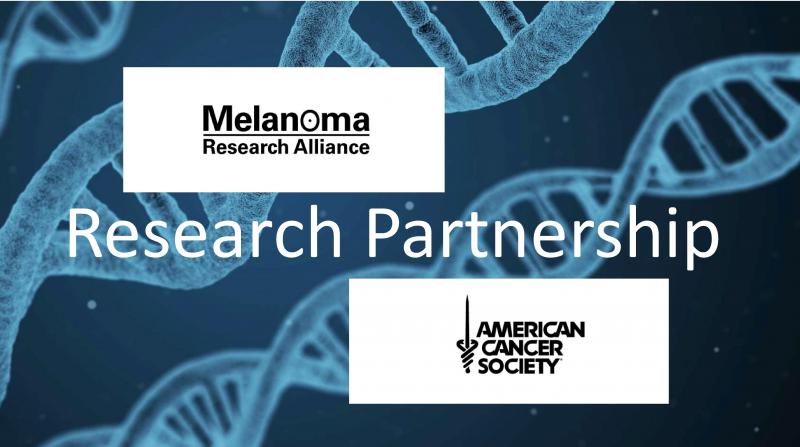Melanoma Research Alliance and the American Cancer Society Forge Research Partnership to Maximize Immunotherapy Benefit to Patients
By Pamela Goldsmith, MRA Director of Communications | 10 July 2017 | Allies & Partnerships, Science

The Melanoma Research Alliance (MRA) and the American Cancer Society (ACS) are partnering to fund much-needed research aimed at decreasing, rare but serious, and at times even life-threatening, side effects associated with checkpoint inhibitors in hopes of increasing further cancer immunotherapy benefit to patients.
While immunotherapy drugs have been identified as a breakthrough in cancer treatment, offering tremendous hope to patients, they can also pose numerous risks that arise from the very thing that makes them effective. For some, allowing an unleashed attack on the immune system causes some patients to experience life-altering, outcome-limiting or lethal side effects. Several journals have reported on adverse events related to immunotherapy, and in particular combination checkpoint immunotherapy. The following provides a high-level overview: Immune System, Unleashed by Cancer Therapies, Can Attack Organs.
MRA and ACS envision a future in which research supported through this collaboration can reduce adverse events (AE) and lead to better overall outcomes for patients treated with checkpoint immunotherapy. In April, the two partners formalized an agreement to jointly support such research in melanoma and other cancers.
“Immunotherapies have played a critical role in advancing melanoma treatment, leading melanoma to serve as the proving ground for immunotherapy,” said Michael Kaplan, President & CEO of the Melanoma Research Alliance. Checkpoint immunotherapies, first approved in melanoma, are now being used to treat a number of cancers.
In recognition of the immense potential of checkpoint immunotherapies in combatting multiple cancers, and the reality that immunotherapy AE pose a challenge that must be addressed, the focus of the partnership is research towards the prevention; and reduction and/or management of life-altering and/or outcome-limiting side effects of checkpoint inhibitor therapy.The collaboration will include funding of research teams and individual investigators; and will be complemented with a public-facing awareness campaign to educate the public on melanoma beginning in 2018.
A single Request for Proposals (RFP) open to researchers at academic institutions in the US was jointly issued in the start of July 2017 and can be accessed using the following link: https://www.cancer.org/immunotherapyRFA. Both individual investigator awards — Formative Awards as well a Team Award, using a multi-disciplinary perspective, will be offered. Formative awards will help seed the ground in this relatively young area of checkpoint immunotherapy AE research.
MRA and ACS has each committed $1 million for the awards, and the combined $2 million will be used to fund a Team at $1 million for three years and up to five large formative awards at $200,000 each that can be used for two or three-year periods.
Research Immunotherapy Partners
